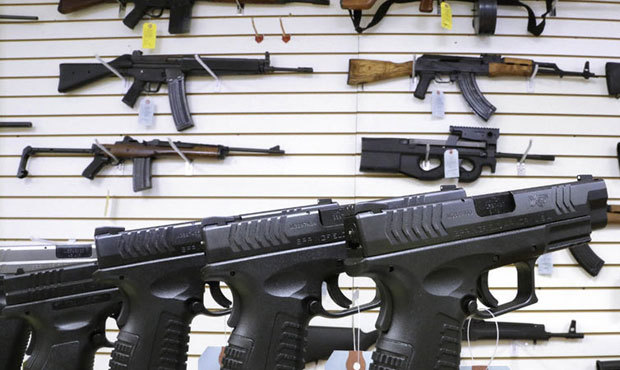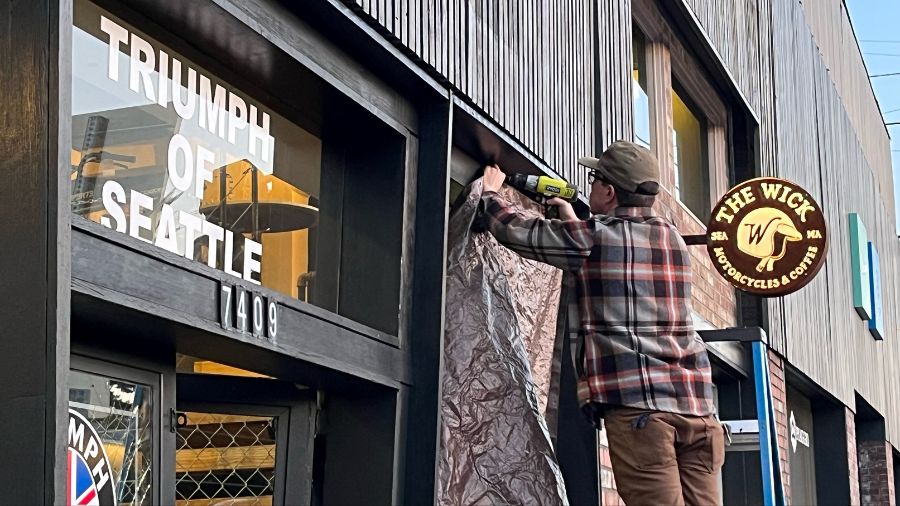Seattle City Council approves $25 gun tax, regulations
Aug 10, 2015, 3:37 PM | Updated: Aug 11, 2015, 6:24 am

As the Seattle City Council prepares to take a vote on a proposed set of taxes on firearms and ammunition, local business owners are also preparing for a lawsuit should it pass. (AP)
(AP)
In a vote on Monday afternoon, the Seattle City Council unanimously approved a new gun tax and regulations within the city.
The new tax places an extra $25 on each firearm sold within the city and 5 cents on each round of ammunition. The council also passed an ordinance that requires mandatory reporting of lost and stolen firearms.
Related: John Curley says Seattle gun tax won’t stop gun violence
“Every day, the general public pays the enormous cost of gun violence,” said Council President Tim Burgess moments after the vote. “Gun violence is a public health crisis in our city and our nation. City government can and must pursue innovative gun safety measures that save lives and save money. As it has in other areas of policy, Seattle can lead the way in local solutions.
“A gun violence tax will give us revenue to provide broad-based benefits through research and prevention programs. Mandatory reporting provides the police information critical to investigations. I’m grateful for my colleagues’ full support for both of these measures.”
Critics have called foul on the arguments for the taxes.
Sergey Solyanik is one such critic. The owner of Precise Shooter on Aurora Avenue, argues against the new tax, and has published his own numbers and figures that contradict the city’s assertions it can take in between $300,000 and $500,000 in gun-tax revenue to put towards gun-violence prevention programs.
“Basically, what the city has done is that they have invented numbers,” he said. “Pretty much, all the numbers they have associated with this proposal are outright fake.”
Solyanik punched his own numbers, based on actual sales in the city, and he estimates Seattle would more likely get around $80,000 from the tax. But that is only if the tax doesn’t alter the market. The gun store owner also argues that the tax will cause customers to divert their purchases to shops just beyond the city’s border.
“My store will definitely have to move. It would not be economically viable to stay in the city,” he said, noting that there are only two primary gun shops in Seattle, but many more just outside the city.
But that move won’t come immediately. The city can expect a legal battle over the taxes first.
“The very first thing that is going to happen is that all the gun stores will have to file a lawsuit trying to stay this,” Solyanik said. “So while the court considers it, the law won’t go into effect.”
Solyanik said that the cheapest option is for him to sue the city. The next cheapest option is to move his store. If he stays in the city, he will go out of business under the taxes.
For example, Solyanik said that his gun store grossed $22,000 during the first six months of 2015. That is before he pays expenses. He estimates that if he paid the city’s taxes himself, instead of passing them along to the customer, it would cost $23,500.
If business owners made good on the threat to sue Seattle over the gun taxes, word of the controversy will likely make its way to the state’s attorney general’s office, where it might face state-level scrutiny.
“A plaintiff could sue the city, probably for a declaratory judgment declaring the city ordinance invalid as being preempted by state law,” according to Alison Dempsy-Hall with Washington’s Office of the Attorney General. “The Declaratory Judgments Act requires that any party alleging that a local ordinance is invalid give notice of that claim to the attorney general.”
Solyanik believes Seattle’s ordinance is invalid.
“The only real intent for this law is to regulate the firearm industry, basically regulate it out of town,” Solyanik said.
He further said that the state’s own laws prevent cities from making local gun control regulations.
“There is a law in the state of Washington that says you cannot intact more restrictions on firearms than already exist in the state,” Solyanik said. “It is extremely easy to show that the only intent with this law is not collecting the revenue, but legislating on guns, and it should be easy for a court to see that this is illegal.”













